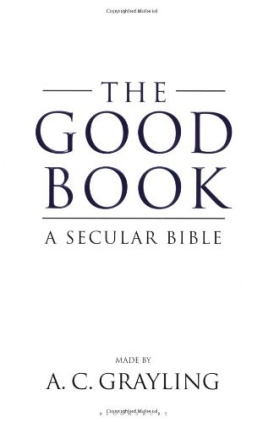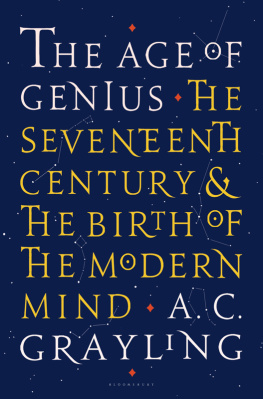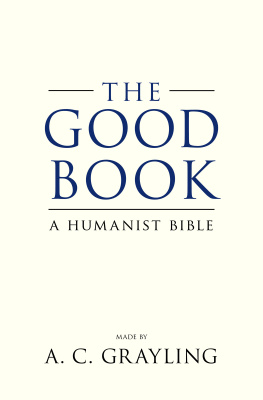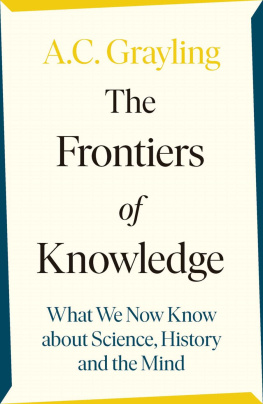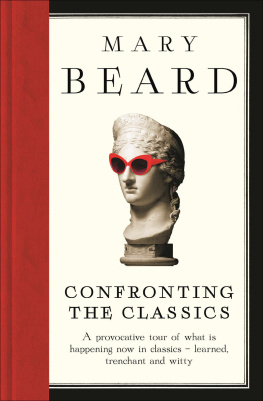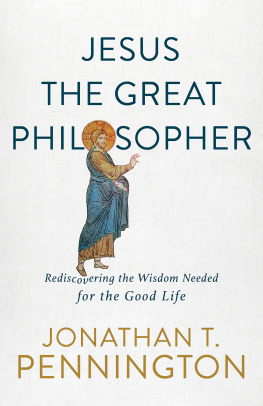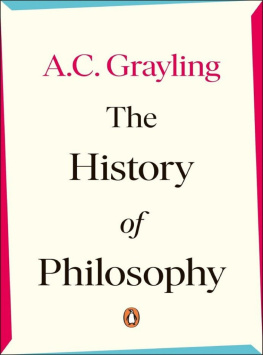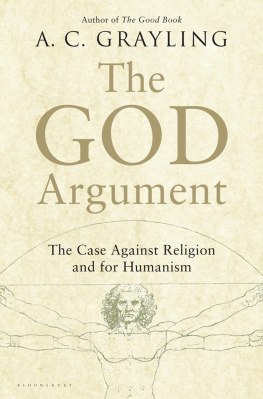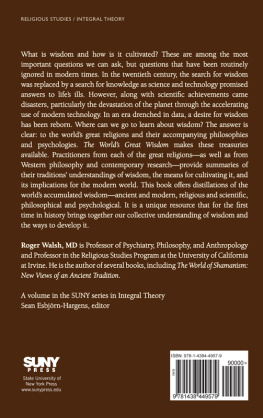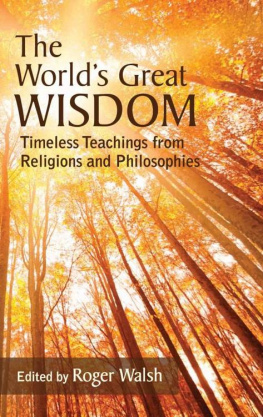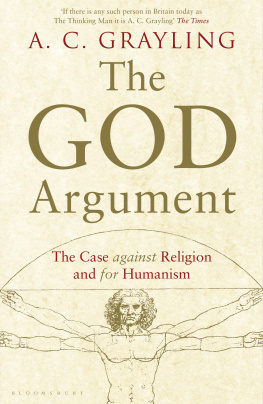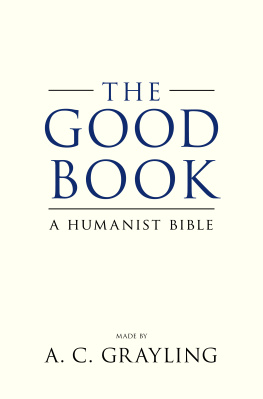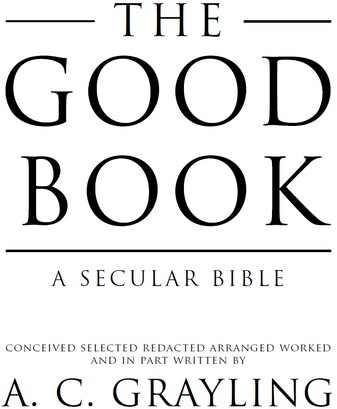

Walker & Co.
New York
Dear reader:
It might be thought vain to offer a work such as this to humankind in the hope that it will be useful, because the diversity of principles, ideas and tastes among people is very great, as is the fixity of our notions and our reluctance to change. But in truth it would be a greater vanity to offer a work for any other reason. Let the sincerity of the intention, then, be this books main commendation. No work of this or any kind can please everyone, whatever its ambition; but this one at least gives satisfaction to its maker, of having aimed sincerely at truth and usefulness, and having done so by following in the paths of the wise. Throughout history the commonwealth of humankind has had master-thinkers whose mighty works are monuments to posterity; it is aspiration enough to be a guide among them, and to take from them resources to promote what is true and good.
All who read this book, therefore, if they read with care, may come to be more than they were before. This is not praise of the work itself, but of its attentive readers, for the worth to be found in it will come from their minds. If there is anyone who learns nothing from this book, that will not be attributable to faults in it, but to that readers excellence. If readers judge candidly, none among them can be harmed or offended by what it asks them to consider. Yet all who come hungry to these granaries of the harvest made by their fellows and forebears, will find nourishment here.
Every art and inquiry, and similarly every action and pursuit, aims at some good; therefore the ultimate good has rightly been described as that at which all things aim. If there is a goal of what we do that we desire for its own sake, everything else being desired for the sake of this, that goal must constitute our chief and highest good. Seeking knowledge of that good cannot fail to have a great influence on life. When archers choose a target to aim at, they are more likely to aim true; shall we not do likewise by having as our target the discovery and doing of what is right? To determine what the good is, and of the best ways to know it, is the most important of all our endeavours, and is truly the master art of living.
Here in your hands is just such an endeavour, consisting in distillations of the wisdom and experience of humankind, to the end that reflecting on them might bring profit and comfort. It has been remarked that a person who fishes a stream might find something of advantage to himself there, but he who takes his nets to the ocean might expect greater catches, and from greater depths. In what follows these great catches are brought before us by fishers of wisdom, returned from the storms as well as the calms of their voyages, and from both near and distant shores.
Anyone who rises above his daily concerns in hope of finding and following truth, will discover it here. Every moment of the pursuit of truth rewards the pursuers pains, when seeking it alongside the great company of those who have trodden the paths of life before us. These are gifts which they have passed back to us; they have freely given the best of themselves, and their gifts have been freely accepted here. Other such books have been similarly made: writings of many hands, ancient and otherwise, taken, wrought, arranged, edited, supplemented and changed, and offered with a familiar purpose in view. Here the procedure has been the same, but the purpose is different: not to demand acceptance of beliefs or obedience to commands, not to impose obligations and threaten with punishments, but to aid and guide, to suggest, inform, warn and console; and above all to hold up the light of the human mind and heart against the shadows of life.
For we live in deeds, not years; in thoughts, not breaths; and our time should be counted in the throbs of our hearts as we love and help, learn and strive, and make from our own talents whatever can increase the stock of the worlds good.
To let light in upon ignorance and falsehood is a service to human understanding; a yet greater service is to show the way to an upland where the view of life is clearer. It is certain, therefore, that most readers will find profit in the following pages, if they read with the attention that those pages merit. How can it be otherwise? All times are seasonable to the increase of wisdom, and no time is lost when spent in the kind of company that inhabits here.
For this is a good book as well as a book of the good, its words from mighty pens, its thoughts from votaries of the right and true. It is a text made from all times for all times, its aspiration and aim the good for humanity and the good of the world.
Contents
Chapter 1
1. In the garden stands a tree. In springtime it bears flowers; in the autumn, fruit.
2. Its fruit is knowledge, teaching the good gardener how to understand the world.
3. From it he learns how the tree grows from seed to sapling, from sapling to maturity, at last ready to offer more life;
4. And from maturity to age and sleep, whence it returns to the elements of things.
5. The elements in turn feed new births; such is natures method, and its parallel with the course of humankind.
6. It was from the fall of a fruit from such a tree that new inspiration came for inquiry into the nature of things,
7. When Newton sat in his garden, and saw what no one had seen before: that an apple draws the earth to itself, and the earth the apple,
8. Through a mutual force of nature that holds all things, from the planets to the stars, in unifying embrace.
9. So all things are gathered into one thing: the universe of nature, in which there are many worlds: the orbs of light in an immensity of space and time,
10. And among them their satellites, on one of which is a part of nature that mirrors nature in itself,
11. And can ponder its beauty and significance, and seek to understand it: this is humankind.
12. All other things, in their cycles and rhythms, exist in and of themselves;
13. But in humankind there is experience also, which is what makes good and its opposite,
14. In both of which humankind seeks to grasp the meaning of things.
Chapter 2
1. Those who first set themselves to discover natures secrets and designs, fearlessly opposing mankinds early ignorance, deserve our praise;
2. For they began the quest to measure what once was unmeasurable, to discern its laws, and conquer time itself by understanding.
3. New eyes were needed to see what lay hidden in ignorance, new language to express the unknown,
4. New hope that the world would reveal itself to inquiry and investigation.
5. They sought to unfold the worlds primordial sources, asking how nature yields its abundance and fosters it,
6. And where in its course everything goes when it ends, either to change or cease.
7. The first inquirers named natures elements atoms, matter, seeds, primal bodies, and understood that they are coeval with the world;
8. They saw that nothing comes from nothing, so that discovering the elements reveals how the things of nature exist and evolve.
9. Fear holds dominion over people when they understand little, and need simple stories and legends to comfort and explain;
10. But legends and the ignorance that give them birth are a house of limitations and darkness.
11. Knowledge is freedom, freedom from ignorance and its offspring fear; knowledge is light and liberation,
12. Knowledge that the world contains itself, and its origins, and the mind of man,
13. From which comes more knowledge, and hope of knowledge again.
Next page
